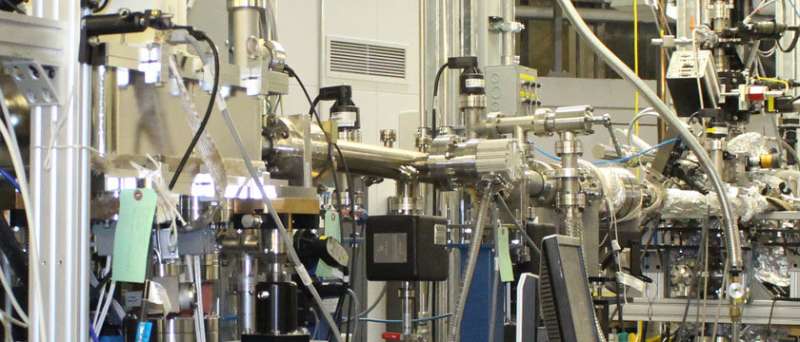Scientists develop process to produce higher quality fuel from biowaste

Researchers have found a way to produce a higher quality, more stable fuel from biowaste, such as sewage, that is simpler and cleaner than existing methods.
"This puts biofuel closer to being a good substitute for fossil fuels," said Hua Song, an associate professor of chemical and petroleum engineering at the University of Calgary.
Song and his research team recently published the results of their research conducted at the Canadian Light Source in the journal Fuel.
"The world energy market is currently dominated by fossil fuels. With increasing concern surrounding climate change and dwindling resources that are associated with the use of fossil fuels, renewable energy sources are becoming increasingly desirable and are currently the fast growing energy source," wrote Song in the research paper.
Currently, biowaste is converted into biofuel in a complex two-step process. The biomass is first converted into a biocrude oil using a chemical and thermal process. Crude oil, in general, is oil that has not yet been refined and still contains impurities. The second stage is a form of refining in which hydrogen is added under high pressure and heat, and serves to remove contaminants such as sulfur, nitrogen and oxygen. However, hydrogen is expensive, the two stages are energy intensive, and carbon waste is left in the form of char and CO2 emissions.
A process to reduce reliance on fossil fuels that still produces the harmful greenhouse gas is counterproductive. Song and his team set out to simplify the conversion process in a way that is sustainable, cost-effective, and clean.
"In our work, we've developed a process which simultaneously produces and upgrades bio-oil in one step and without the need for high pressures," says Song.
The researchers used methane instead of hydrogen for the purification process and they used it directly in the crude stage, but they had to chemically remove the hydrogen from the methane during the purification process since hydrogen is still needed to remove impurities.
Using the CLS, they developed a novel catalyst that reacted with methane to trigger it to release hydrogen. They were faced with a challenge because methane is a very stable compound that doesn't react with many other compounds.
The researchers call the catalyst they developed HZSM-5. To improve its ability to react with methane, they coated the surface of several samples of HZSM-5 with different materials. They then analyzed the samples and studied the surface features using the bright light of the synchrotron.
"From this, we could predict which coatings would react best with the methane to release hydrogen," says Song.
Initial studies using the catalyst in this new approach for producing biofuels show it is more efficient and has lower potential production costs than the current method. As well, carbon remains in the oil in liquid form which leads to a better quality biofuel that is more stable with significantly less greenhouse gas emissions.
More information: Danielle Austin et al. Catalytic valorization of biomass derived glycerol under methane: Effect of catalyst synthesis method, Fuel (2017). DOI: 10.1016/j.fuel.2017.12.018
Provided by University of Calgary




















